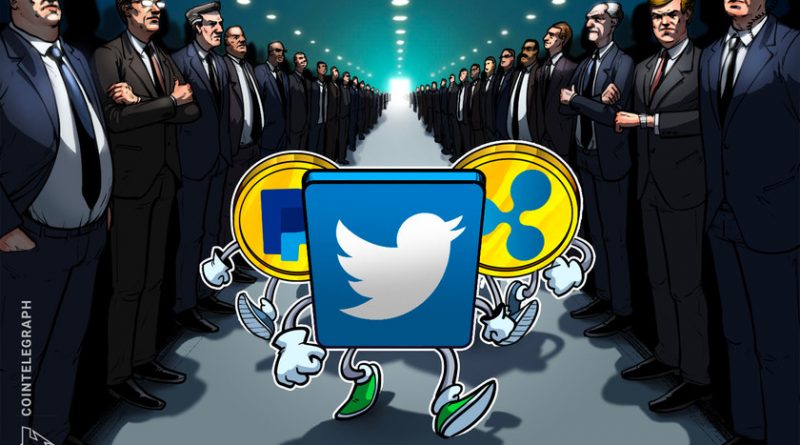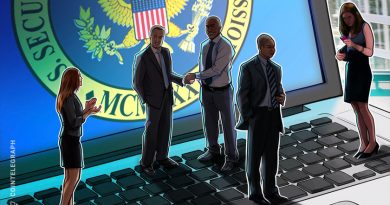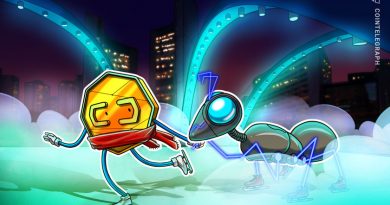Ripple, PayPal, and Twitter join coalition calling for fair elections
“We believe voting should be safe and accessible to everyone, everywhere,” said Ripple.
Blockchain-based payments firm Ripple has joined a non-partisan group of companies working to ensure access to fair voting in the United States.
According to a Nov. 2 tweet from Ripple, CEO Brad Garlinghouse has joined Twitter CEO Jack Dorsey and PayPal CEO Dan Schulman at the Civic Alliance, an organization that states it supports “safe, healthy and trusted elections” in addition to encouraging members’ employees and customers to be civic minded.
“We believe voting should be safe and accessible to everyone, everywhere,” said Ripple. “That’s why Ripple is 100% in #ForDemocracy.”
Within the Civic Alliance — which has 936 members at the time of publication with a reach of more than 5 million employees — a subset of roughly 619 companies claims to encourage 100% of employees to vote with paid time off or flexible work schedules. Ripple has roughly 548 employees at its San Francisco offices.
The group reportedly calls on companies to ensure safe access to voting, recognize state and local election officials as the trusted source for certified results, and “encourage patience as officials count every vote.”
“Each of our companies is unique. Yet, we are united by these nonpartisan values: Every American has a voice in our democracy. Voting should be safe and accessible to all. Elections should be fair and transparent.”
The 2020 Election in the United States will be on Tuesday, Nov. 3. Determining who is eligible to vote is seemingly a partisan issue in the U.S. at the moment, with the Republican National Committee involved in more than 40 lawsuits, most of which involve restricting access to voting rather than encouraging it.
With less than 12 hours before the first polls open on Election Day, many Bitcoiners are optimistic regardless of a Democratic or Republican victory. Grayscale CEO Barry Silbert said that whether it’s Trump or Biden in the end, Bitcoin will win due to more “brrr” at the Federal Reserve.




